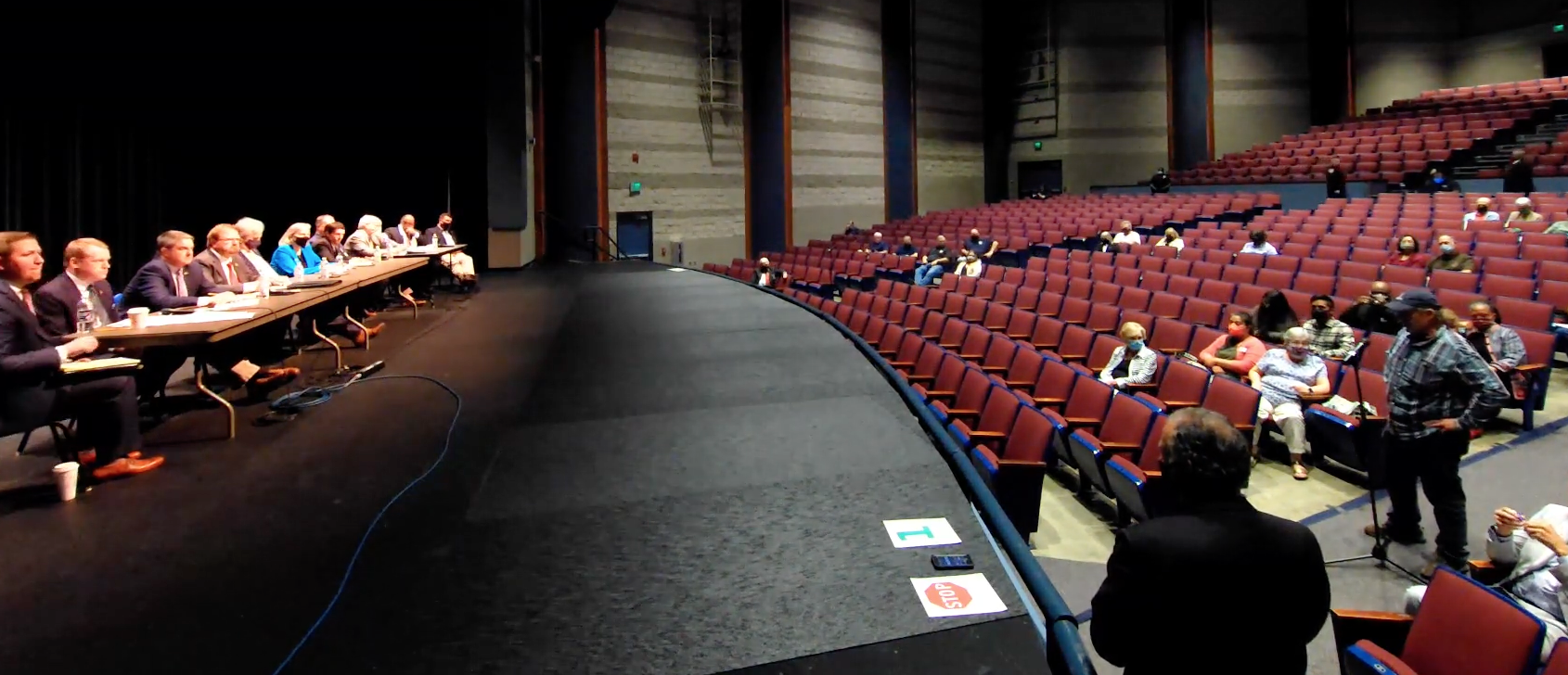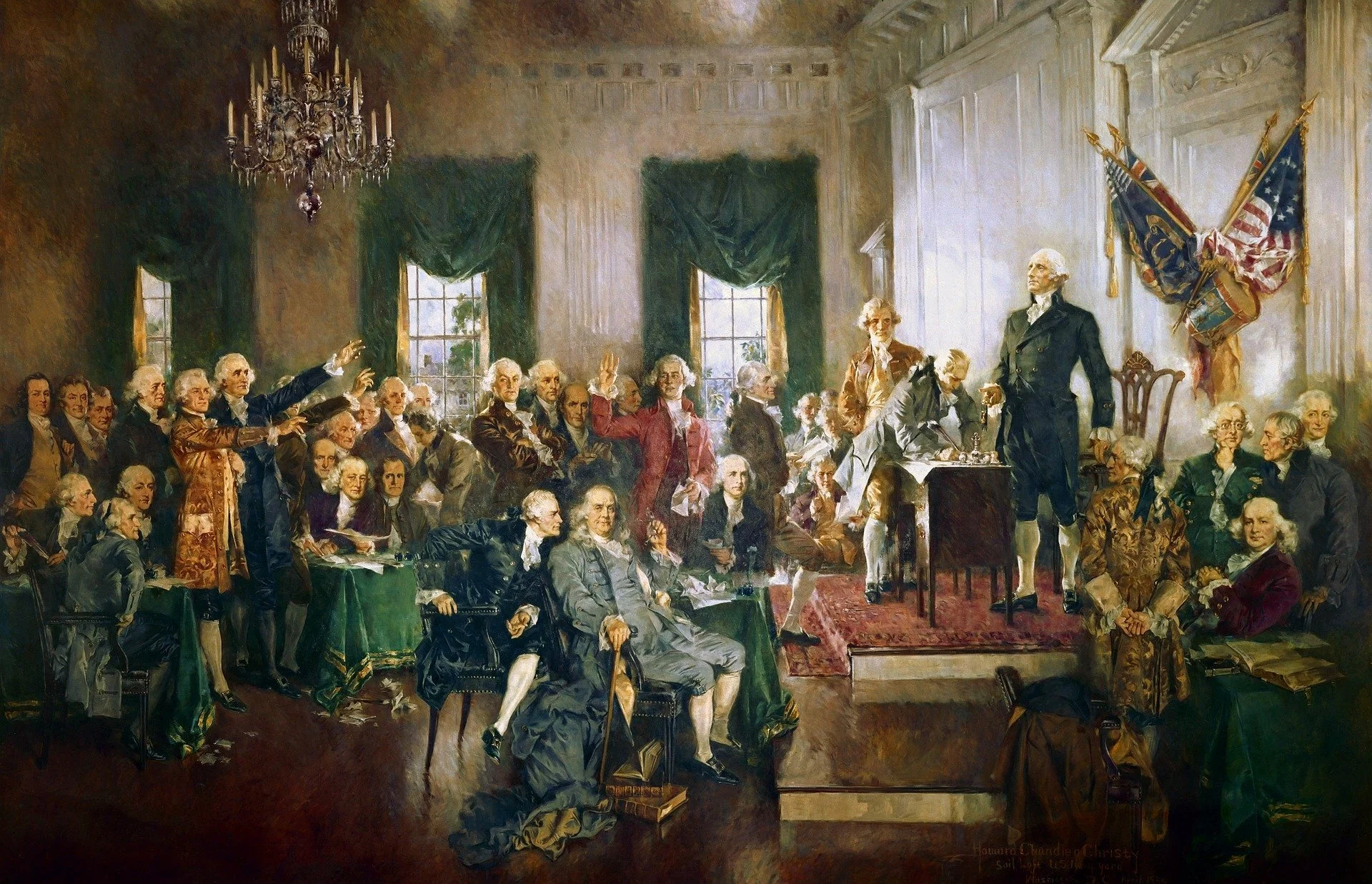Redistricting public hearings held across the state
By Dallas Woodhouse, The Woodshed for The Carolina Journal
The N.C. General Assembly kicked off a month-long series of 13 public redistricting hearings held across the state. State legislative and congressional districts are redrawn every ten years using new data from the U.S. Census report. This year, the data was delayed due to difficulties collecting it during the COVID pandemic. Still, results showed that N.C. has growing by 9.5 percent in the past decade, faster than the national average of 7.4 percent. The results give N.C. a 14th congressional seat.
The first public redistricting meeting was in Caldwell County last week with about 50 people in attendance including some local leaders and the state president of the NAACP. Two more meetings were held on Tuesday in Forsyth County and Pasquotank County. On Wednesday evening, meetings will be held at Durham Technical Community College and
Nash Community College. On Thursday, meetings will be at Alamance Community College and Pitt Community College.
Rep. Destin Hall, R-Caldwell, who is chairman of the N.C. House Redistricting Committee, welcomed the crowd to the first hearing at Caldwell Community College and Technical Institute.
“The chair can speak for all of the members here and all of the members of the General Assembly saying we value your comments and are excited to hear what members of the public have to say about the redistricting process in North Carolina,” said Hall.
Speakers addressed a variety of topics in the hearing. Several speakers thanked the legislators for having an open process and welcoming public comments.
Bob Phillips with Common Cause North Carolina, an organization that has previously sued the state over redistricting maps, thanked the committee for holding the public hearings but asked for them to consider more public hearings and more opportunities for public input after map proposals are released.
“After those draft maps come out it would be great if you held a series of public hearings,” said Phillips.
Rev. Kim Moss with the Caldwell County NAACP criticized the criteria the General Assembly adopted for drawing maps. She claims they are not emphasizing “communities of interest" enough.
“In the past the North Carolina has recognized communities of interest as a racially neutral redistricting criteria. Yet this year communities of interest will be given little to no consideration in this year’s redistricting criteria.”
However, Dr. Andy Jackson, director of the Civitas Center for Public Integrity at the John Locke Foundation, offers caution on considering the undefinable “community of interest” standard.
“There is no common understanding of what a community of interest is, so a community of interest is in the eye of the beholder,” said Jackson. “It is appropriate that claims of communities of interest are only considered after other redistricting criteria have been satisfied.”
“I think the process is great for transparency,” said Phil Ingle, chair of NCGOP Caldwell County, in comments to the committee. He also said that Caldwell citizens desire to keep the county whole in the map-making process. “We like being a whole county. We like being ourselves. On behalf of the 25,000 Republicans, I ask you to leave Caldwell County as it is, keep it whole and don’t split it.”
Under the North Carolina Constitution counties are required to be kept whole as much as possible.
“We believe we speak for many voters. Partisan politics should not play a role in drawing our voting maps,” said Deborah McGivern, president of the League of Women Voters of Catawba Valley. “We want voting maps that do not consider incumbents, residents' voting history or party affiliations. We ask for political neutral criteria. We want voters to pick their representatives not politicians picking their voters."
In an interesting twist, a representative of the NAACP of North Carolina, which sued the General Assembly over alleged racially conscious map drawing, criticized the General Assembly for adopting criteria that forbids the consideration of race.
“When drawing the maps, race data really needs to be included because race neutrality in map drawing in detrimental to communities of color,” said Rosanna McDonald of the NAACP.
NC NAACP President Anthony Spearman warned legislators they could run afoul of Section 2 of the Voting Rights Act if they fail to consider North Carolina’s past issues with racial discrimination.
“I strongly oppose the exclusion of the history of discrimination in the criteria and urge the General Assembly to expressly consider the history of discrimination in voting and redistricting so that it does not again violate Section 2.”
How exactly lawmakers would consider history in drawing current maps with nearly equal population, that complies with the states whole county provision is unclear.
“We support the banning of the use of racial data and political data to help control against gerrymandering,” said Caldwell County resident Melissa Patton. “We strongly favor a whole county provision to ensure fair and legal districts are drawn.”
“Whatever process you use to redistrict make sure all are represented, give someone a fair chance. Let someone win on the merits,” said longtime Caldwell County resident Chuck Gore. “I implore you to make it as fair as possible."
Gore encouraged lawmakers to live up to North Carolina’s motto “to be rather than to seem.”
A full list hearing dates and locations can be found here.
To sign up to speak or submit on-line comments, visit ncleg.gov.



